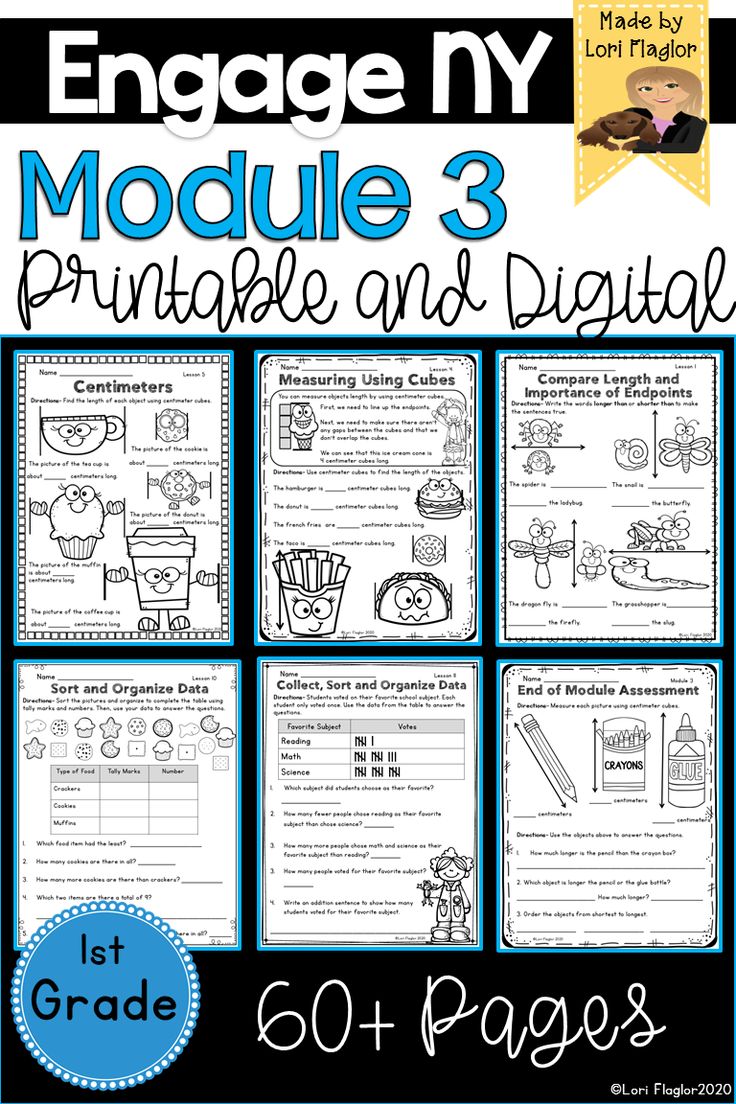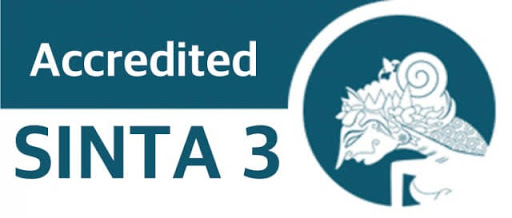Developing integrated digital printing learning module on thematic lessons for students with mental retardation
DOI:
https://doi.org/10.12928/ijei.v3i2.6256Keywords:
digital learning module, mental retardation, thematic lessonAbstract
Education is important for every human because we can think and have a lot of knowledge for life. Children with special needs for mental retardation have problems or problems during the learning process, one of them is thematically. The Research and Development (R&D) research method is carried out by studying research related to the product, developing a product based on these findings, testing it in the field in a setting, and revising it to correct deficiencies found at the proposed testing stage. The development model used in this research is the Analyze, Design, Develop, Implement, and Evaluation (ADDIE) model. Analysis of the needs of mentally retarded students found the competencies need to be improved are the ability to read, write and count or commonly called calistung. This model will develop a learning media. The learning media that will be developed are in the form of modules intended for students with mental retardation in grade 2 elementary school (SD). The module was then developed into a learning module that is integrated with digital media. This development resulted in a product in the form of a printed module of the hypercontent type of digitally integrated thematic subject for grade 2 students of the Elementary School with Special Requirements. This module can help the teaching and learning process that is suitable to be applied to mentally retarded children.
References
Afacan, K., Wilkerson, K. L., & Ruppar, A. L. (2017). Multicomponent Reading Interventions for Students With Intellectual Disability. Remedial and Special Education, 1–14. https://doi.org/10.1177/0741932517702444
Ainsworth, M. K., Evmenova, A. S., Behrmann, M., & Jerome, M. (2016). Teaching Phonics to Groups of Middle School Students with Autism, Intellectual Disabilities, and Complex Communication Needs. Research in Developmental Disabilities, 56, 165–176. https://doi.org/10.1016/j.ridd.2016.06.001
Alavi, S. Z., Savoji, A. P., & Amin, F. (2013). The effect of social skills training on aggression of mild mentally retarded children. Procedia-Social and Behavioral Sciences, 84, 1166–1170.
American Psychiatric Association. (2013). Diagnostic and Statistical Manual of Mental disorders Washington (Fifth edit). APA.
Angelka, K., & Goran, A. (2018). Learning Problems in Children with Mild Intellectual Disability. International Journal of Cognitive Research in Science, Engineering and Education (IJCRSEE), 6(1), 31–38. https://doi.org/10.5937/ijcrsee1801031K
Bahar, S. (2020). Permasalahan-Permasalahan Sekolah Menengah Pertama (SMP) Bunda Dalam Pembelajaran Jarak Jauh Sebagai Dampak Pandemi Covid-19. Jurnal Alasma: Media Informasi Dan Komunikasi Ilmiah, 2(2), 217–230.
Borg, W.R & Gall, M.D. (2001) Educational Research, New York, Logham C.A.
Browder, D. M., Wakeman, S. Y., Spooner, F., Ahlgrim-Delzell, L., & Algozzine, B. (2006). Research on Reading Instruction for Individuals with Significant Cognitive Disabilities. Exceptional Children, 72(4), 392–408. https://doi.org/10.1177/001440290607200401
Browder, M., D., Spooner, & Fred. (2011). Teaching Students with Moderate and Severe Disabilities. The Guilford Press.
Chang, Y.-S., Shih, M.-H., Tseng, S.-H., Cheng, H.-C., & Teng, C.-L. (2005). Ophthalmologic Abnormalities in High School Students with Mental Retardation in Taiwan. Journal Formos Med Assoc, 104(8), 578–584.
Damayanti, H. N., & Sutama, S. (2016). Efektivitas flipped classroom terhadap sikap dan ketrampilan belajar matematika di SMK. Manajemen Pendidikan, 11(1), 2–7.
Fadiana, M., & Citra Dewi Rosalina. (2020). Peningkatan Rasa Percaya Diri Siswa Tunagrahita melalui Pembelajaran Terintegrasi Semiotik dengan Media Buku Pop Up. Dinamisia : Jurnal Pengabdian Kepada Masyarakat, 4(2), 373–383. https://doi.org/10.31849/dinamisia.v4i2.3940
Finnegan, E. G. (2012). Two Approaches to Phonics Instruction: Comparison of Effects with Children with Significant Cognitive Disability. Education and Training in Autism and Developmental Disabilities, 47(3), 269–279.
Hakları, G. Ö. Y. Ç., Aydoğan, Y., & Akduman, G. G. (2017). Yasa ve Yönetmelikler Işığında Geçmişten. Üstün Zekâlılar Eğitimi ve Yaratıcılık Dergisi, 4(2), 1–11.
Hidayati, W. (2016). Implementation of Curriculum 201 in Primary School Sleman Yogyakarta. IOSR Journal of Research & Methode in Education (IOSR-JRME), 6(2), 6–12. https://doi.org/10.9790/7388-0602020612
Husna, F., Yunus, N. R., & Gunawan, A. (2019). Hak Mendapatkan Pendidikan bagi Anak Berkebutuhan Khusus dalam Dimensi Politik Hukum Pendidikan. SALAM: Jurnal Sosial Dan Budaya Syar-I, 6(2), 207–222. https://doi.org/10.15408/sjsbs.v6i1.10454
Illie, V. (2019). The Flipped Classroom. Education Quarterly Reviews, 2(2).
Maelani, W., & Sukriadi, S. (2020). Model Pembelajaran Gerak Dasar Lari Berbasis Permainan Tematik pada Siswa Tunagrahita Ringan. Jurnal Pendidikan Jasmani Dan Adaptif, 02(03), 41–52. https://doi.org/10.21009/jpja.v3i02.15759
Majid, A. (2014). Pembelajaran Tematik Terpadu. PT Remaja Rosdakarya.
Mayasari, N. (2019). Layanan Pendidikan bagi Anak Tunagrahita dengan Tipe Down Syndrome. Yinyang: Jurnal Studi Islam Gender Dan Anak, 14(1), 111–134. https://doi.org/10.24090/yinyang.v14i1.2847
Mulyatiningsih, Endang. “Metode Penelitian Tindakan Kelas.” Modul Pelatihan Pendidikan Profesi Guru Fakultas Teknik Universitas Negeri Yogyakarta, tanpa tahun.
Nana Syaodih Sukmadinata. (2009). Landasan Psikologi Proses Pendidikan. Bandung: Remaja Rosdakarya.
Nasir, M. N. A., & Efendi, A. N. A. E. (2019). Thematic Analysis on the Rights of Disabled People to Higher Education. Journal of Education and Social Sciences, 12(1), 8–17.
Pramudya, E., Kristin, F., & Anugraheni, I. (2019). Peningkatan Keaktifan dan Hasil Belajar IPA pada Pembelajaran Tematik Menggunakan PBL. NATURALISTIC: Jurnal Kajian Penelitian Pendidikan Dan Pembelajaran, 3(2), 320–329. https://doi.org/10.35568/naturalistic.v3i2.391
Retno, D. (2016). Strategi pengembangan perilaku adaptif anak tunagrahita melalui model pembelajaran langsung. JPK (Jurnal Pendidikan Khusus), 12(1), 51–66.
Rohmatin, D. N. (2017). Pengembangan Flashcard pada Materi Sistem Gerak Manusia untuk Meningkatkan Hasil Belajar Siswa di Kelas VIII SMP. PENSA: E-JURNAL PENDIDIKAN SAINS, 5(03).
Schott, F., & Seel, N. M. (2015). Instructional Design. In International Encyclopedia of the Social & Behavioral Sciences: Second Edition. https://doi.org/10.1016/B978-0-08-097086-8.92032-4
Scully, D., Lehane, P., & Scully, C. (2021). ‘It Is No Longer Scary’: Digital Learning Before and During the Covid-19 Pandemic in Irish Secondary Schools. Technology, Pedagogy and Education, 30(1), 159–181. https://doi.org/10.1080/1475939X.2020.1854844
Sholichati, S. (2015). Pelaksanaan Layanan Bimbingan Pembelajaran Bagi Siswa Tunagrahita Ringan di Kelas II Sekolah Dasar Negeri 1 Ngulakan Pengasih Kulon Progo. BASIC EDUCATION, 4(9).
Sofyan, F. A. (2019). Implementasi HOTS pada Kurikulum 2013. Jurnal Inventa, 3(1), 1–17.
Starkey, L. (2020). A Review of Research Exploring Teacher Preparation for the Digital Age. Cambridge Journal of Education, 50(1), 37–56. https://doi.org/10.1080/0305764X.2019.1625867
Tsao, W., HP, H., YT, C., & MM., H. (2017). Ophthalmologic Abnormalities among Students with Cognitive Impairment in Eastern Taiwan: the Special Group with Undetected Visual Impairment. Formos Med Assoc, 5(116), 345–350.
Tung, K.Y. 2017. Desain Instruksional Perbandingan Model dan Implementasinya. Yogyakarta: Andi offset.
UNESCO Institute for Statistics. (2020). COVID-19 Impact on Education. https://en.unesco.org/ %0Acovid19/educationresponse
Wahyudin, A. (2020). Model Pembelajaranbleended Learning (Model Flipped Classroom) Untuk Meningkatkan Efektivitas Pembelajaran Ips Pada Masa Pandemi Covid19. Jurnal Sudut Pandang, 1(1), 1–23.
Yulianti, R. (2012). Pelaksanaan Pembelajaran Tematik bagi Anak Tunagrahita. E-JUPEKhu (Jurnal Ilmiah Pendidikan Khusus), 1(3), 305–319.

Downloads
Published
How to Cite
Issue
Section
License
Copyright (c) 2022 Nurjaya, Dian Fatimatus Salwa, Nisrina Hasna' Nabil, Muhammad Yusuf Wibowo, Maulina Istighfaroh

This work is licensed under a Creative Commons Attribution-ShareAlike 4.0 International License.
Authors who publish with this journal agree to the following terms:
- Authors retain copyright with the work simultaneously licensed under a Creative Commons Attribution License that allows others to share the work with an acknowledgement of the work's authorship and initial publication in this journal.
- Authors are able to enter into separate, additional contractual arrangements for the non-exclusive distribution of the journal's published version of the work (e.g., post it to an institutional repository or publish it in a book), with an acknowledgement of its initial publication in this journal.
- Authors are permitted and encouraged to post their work online (e.g., in institutional repositories or on their website) prior to and during the submission process, as it can lead to productive exchanges, as well as earlier and greater citation of published work (See The Effect of Open Access).




